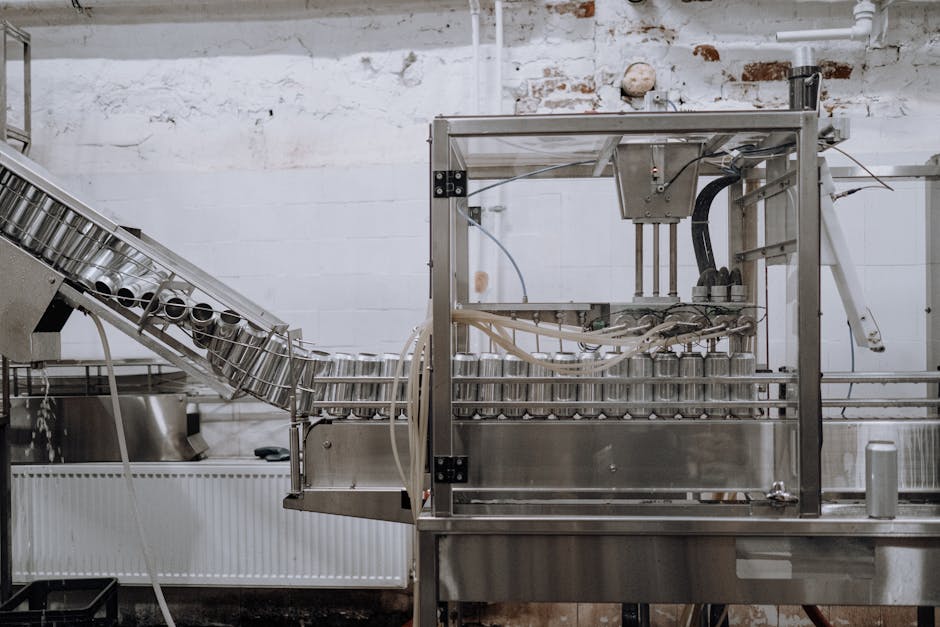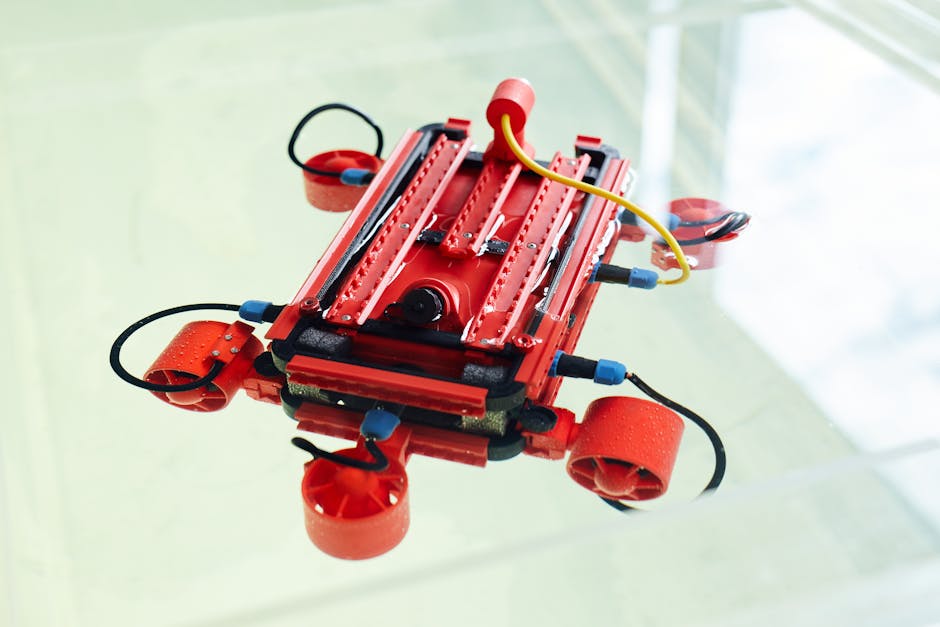The Future of Manufacturing: Integrating Advanced Quotation Software
As manufacturing processes continue to evolve, the integration of advanced quotation software has become instrumental in enhancing operational efficiency and cost-effectiveness. This transformation in manufacturing practises requires a forward-thinking approach to streamline the quotation process.
In this context, the adoption of advanced quotation software has emerged as a pivotal element in optimising production workflows and achieving greater control over pricing and quoting accuracy. This introduction aims to shed light on the pivotal role that advanced quotation software plays in shaping the future of manufacturing.
By examining the benefits, challenges, and future trends, this exploration seeks to provide a comprehensive understanding of how integrating advanced quotation software is poised to revolutionise the manufacturing landscape.
Key Takeaways
- Advanced quotation software streamlines the cost estimation process, improving productivity and reducing errors.
- It enhances pricing accuracy through automated calculations and real-time access to pricing and supplier information.
- Provides tools to analyse historical pricing data, track market trends, and forecast future pricing fluctuations.
- Facilitates informed decisions about pricing strategy, ensuring competitiveness in the market.
The Evolution of Manufacturing Processes

Manufacturing processes have evolved significantly in response to technological advancements and changing consumer demands. The evolution of manufacturing has been driven by the need for increased efficiency, cost reduction, and improved productivity. Automation has played a crucial role in this evolution, allowing for repetitive tasks to be performed with precision and consistency, leading to higher output and reduced labour costs.
Furthermore, digitisation has transformed traditional manufacturing methods, enabling the integration of advanced technologies such as IoT, data analytics, and artificial intelligence.
The shift towards automation and digitisation has not only streamlined production processes but has also led to a significant reduction in human error, resulting in higher quality products. Moreover, the implementation of advanced manufacturing technologies has contributed to cost reduction through optimised resource utilisation and waste minimisation.
As a result, manufacturers are now able to meet the changing demands of consumers more efficiently, with increased customisation and shorter lead times. Ultimately, the evolution of manufacturing processes continues to pave the way for a more agile, responsive, and competitive industry.
Benefits of Advanced Quotation Software

The integration of advanced quotation software offers numerous benefits to manufacturing processes.
By streamlining the cost estimation process, manufacturers can efficiently and accurately determine project expenses.
This, in turn, enhances pricing accuracy and ultimately leads to improved customer satisfaction.
Streamlining Cost Estimation Process
Utilising advanced quotation software significantly enhances the efficiency and accuracy of the cost estimation process in manufacturing operations. This streamlines the workflow, improves productivity, and reduces errors. Advanced quotation software offers several benefits that contribute to these improvements, as outlined in the table below:
| Benefits of Advanced Quotation Software |
|---|
| Feature |
| Automated Calculations |
| Real-time Data Access |
| Customisable Templates |
Enhancing Pricing Accuracy
With the integration of advanced quotation software, manufacturing companies can enhance pricing accuracy through automated calculations and real-time access to pricing and supplier information. This enables precise cost estimations and the ability to adapt pricing strategy in response to market competitiveness.
Advanced quotation software provides the necessary tools to analyse historical pricing data, track market trends, and forecast future pricing fluctuations. By leveraging this information, manufacturers can make informed decisions about their pricing strategy, ensuring that their offerings remain competitive in the market.
This level of control over pricing accuracy not only facilitates a more efficient and effective approach to pricing but also contributes to overall cost optimisation and profitability.
Moving forward, it’s crucial to explore how this enhanced pricing accuracy translates into improving customer satisfaction.
Improving Customer Satisfaction
By enabling manufacturers to accurately assess costs and adapt pricing strategies in response to market trends, advanced quotation software plays a pivotal role in enhancing customer satisfaction. This leads to improved customer retention and market differentiation.
The benefits of advanced quotation software in improving customer satisfaction include:
- Increased Transparency: Customers appreciate clear, detailed quotes that demonstrate a thorough understanding of their needs.
- Faster Response Times: Quick and accurate quoting processes demonstrate a commitment to efficiency and customer service.
- Customisation: Tailored quotes based on specific requirements show a willingness to meet individual needs.
- Error Reduction: Minimising inaccuracies in quotes ensures a smoother transaction process, enhancing customer trust and satisfaction.
These factors culminate in enhanced customer satisfaction and long-term loyalty.
Moving forward, it is essential to address the challenges in implementing advanced quotation software effectively.
Overcoming Challenges in Implementation

As manufacturing companies look to integrate advanced quotation software, they often encounter challenges related to resistance to change and ensuring user adoption.
Overcoming these challenges is crucial for successful implementation and realising the full potential of the advanced software. Addressing resistance to change and ensuring user adoption will be key focus areas for manufacturers seeking to leverage the benefits of advanced quotation software.
Addressing Resistance to Change
The manufacturing industry’s integration of advanced quotation software faces challenges in implementation due to resistance to change. Overcoming this resistance requires effective change management strategies.
Key methods to address resistance include:
-
Clear Communication: Articulate the benefits of the new software and the rationale behind the change to all stakeholders.
-
Involving Key Stakeholders: Engage key individuals early in the process to gain their support and address their concerns.
-
Training and Support: Provide comprehensive training and ongoing support to ensure a smooth transition.
-
Recognising and Rewarding Adoption: Acknowledge and reward employees who embrace the new software to reenforce positive behaviour.
Ensuring User Adoption
Manufacturers must actively promote user adoption of advanced quotation software to overcome implementation challenges and drive successful integration. User training is essential to familiarise employees with the new software, ensuring they understand its features and benefits.
Additionally, change management strategies should be implemented to address any resistance and facilitate a smooth transition. This involves clearly communicating the reasons for the software implementation, providing support for employees during the adjustment period, and involving them in the decision-making process.
Impact on Operational Efficiency

With the integration of advanced quotation software, manufacturing companies can significantly enhance their operational efficiency. This impact is evident through improved operational visibility and production optimisation, leading to streamlined processes and reduced costs.
Here are some key ways in which advanced quotation software contributes to operational efficiency:
-
Real-time Data Insights: The software provides real-time visibility into the entire manufacturing process, allowing for informed decision-making and proactive issue resolution.
-
Automated Quoting Process: By automating the quotation process, companies can reduce manual errors and speed up response times, ultimately improving overall operational efficiency.
-
Resource Allocation Optimisation: Advanced quotation software enables better resource allocation by accurately estimating material and labour costs, leading to more efficient production planning.
-
Enhanced Communication and Collaboration: The software facilitates seamless communication and collaboration between different departments, ensuring that everyone is alined and working towards operational excellence.
As manufacturing companies continue to embrace advanced quotation software, it is crucial to consider future trends and innovations in this rapidly evolving landscape.
Future Trends and Innovations

As manufacturing companies integrate advanced quotation software, the future trends and innovations in this technology promise to revolutionise operational efficiency and drive competitive advantage.
Automation in manufacturing is poised to play a pivotal role in shaping the future landscape of the industry. The integration of advanced quotation software with automated manufacturing processes will enable seamless and real-time generation of quotes based on intricate production requirements, thereby streamlining the entire production cycle. This will not only expedite the quotation process but also enhance accuracy and responsiveness to customer demands.
Moreover, digital transformation will continue to be a key driver of innovation, with the integration of artificial intelligence and machine learning algorithms into quotation software, allowing for predictive and prescriptive analytics. This will empower manufacturers to proactively optimise their operations and make data-driven decisions, ultimately leading to improved efficiency and cost savings.
The future of manufacturing lies in the convergence of advanced quotation software with automation and digital transformation, promising unprecedented levels of productivity and competitiveness in the industry.
The Role of Advanced Quotation Software

How will the integration of advanced quotation software reshape the traditional processes of generating quotes in manufacturing?
Advanced quotation software is set to revolutionise the way manufacturing companies handle quoting processes. The role of advanced quotation software encompasses improving efficiency and reducing errors in the generation of quotes.
Here are some key points to consider:
-
Streamlined Quoting Process: Advanced quotation software automates and streamlines the process of generating quotes, saving time and effort for manufacturing companies.
-
Real-time Pricing Information: The software provides real-time access to pricing information, ensuring that quotes are accurate and reflective of current market conditions.
-
Customisation and Personalisation: Manufacturers can customise quotes to meet specific customer requirements, enhancing the overall customer experience.
-
Integration with ERP Systems: Advanced quotation software can seamlessly integrate with existing ERP systems, allowing for smooth data flow and reducing the likelihood of errors.
The integration of advanced quotation software not only transforms the way quotes are generated but also contributes to overall operational efficiency and accuracy in the manufacturing industry.
Frequently Asked Questions
How Can Advanced Quotation Software Help Manufacturers Adapt to Changing Consumer Demands and Market Trends?
Advanced quotation software allows manufacturers to adapt to changing consumer demands by providing real-time market trend analysis. This enables informed decision-making and agile responses to shifts in consumer behaviour, ultimately enhancing competitiveness and customer satisfaction.
What Are the Potential Cybersecurity Risks Associated With Implementing Advanced Quotation Software in Manufacturing Processes?
Implementing advanced quotation software in manufacturing processes poses potential cybersecurity risks. To mitigate these, stringent cybersecurity measures and robust data protection protocols must be in place. Proactive monitoring and continuous updates are essential for safeguarding sensitive information.
How Does Advanced Quotation Software Integrate With Other Manufacturing Technologies, Such as Robotics and Iot Devices?
Advanced quotation software integrates with manufacturing technologies like robotics and IoT devices through seamless data exchange and real-time communication. This enables streamlined production processes, optimised resource allocation, and enhanced decision-making capabilities, ultimately leading to improved efficiency and productivity.
What Are the Potential Environmental Impacts of Implementing Advanced Quotation Software in Manufacturing Processes?
Implementing advanced quotation software in manufacturing processes can result in reduced paper usage, energy conservation, and minimised waste production, leading to positive environmental impacts. Additionally, the integration can contribute to cost savings through improved resource efficiency.
How Do Manufacturers Ensure That the Data Used in Advanced Quotation Software Remains Accurate and Up-To-Date?
To ensure data accuracy in advanced quotation software, manufacturers must prioritise system maintenance by implementing regular updates, data validation processes, and monitoring tools. This proactive approach helps to maintain accurate and up-to-date information for effective quoting processes.
Conclusion
In conclusion, the integration of advanced quotation software in manufacturing processes presents substantial benefits.
Overcoming challenges in implementation can lead to improved operational efficiency and future trends and innovations.
The role of advanced quotation software is crucial in revolutionising the manufacturing industry.
Contact us to discuss our services now!
